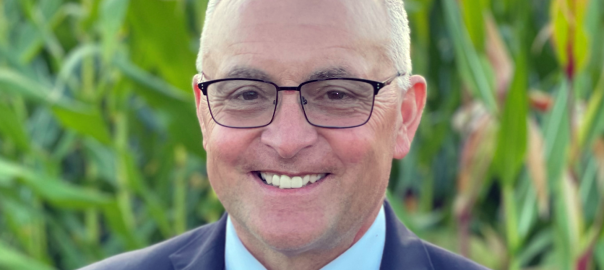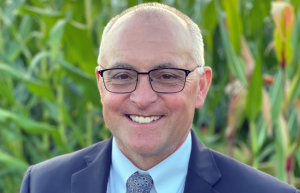
New York Farm Bureau President Highlights Public Policy Priorities to Support NY Agriculture

So much is at stake for New York agriculture as we head into 2022. Farmers are still feeling the repercussions from the pandemic, just like most consumers and small business owners, with market disruptions, supply shortages, and inflation that has increased the costs for many things needed to farm and produce food.
It is imperative that the farming community work closely with policy makers to address the challenges facing agriculture while also capitalizing on opportunities that will help us all.
A good place to start is the New York State Budget. The spending plan put forth by the governor is truly one of the best New York Farm Bureau has seen in years. Gov. Hochul fully funds several important animal health, promotion and research programs that benefit a large diversity of New York agriculture. She looks to double the workforce retention tax credit from $600 to $1,200 which would offset some rising labor costs that continue to put New York farms at a competitive disadvantage. Gov. Hochul also proposes an increased investment tax credit for farms to recoup some expansion costs if they qualify with a tax liability to take it. New York Farm Bureau is asking for that to be a refundable tax credit.
The governor also earmarked a record $500 million in spending for the Environmental Protection Fund (EPF). This includes significant increase for farmland protection, nutrient management programs, and Soil and Water Conservation Districts that help administer sustainability efforts increasingly happening on our farms. There is also $17 million for climate resilient farming initiatives. The EPF increases address one of our organization’s major priorities, to support farmers in their efforts to adapt to and mitigate climate change. Farmers will be able to continue to invest in soil health practices and support on-farm renewable energy to reduce carbon emissions and meet the state’s net-zero climate goals.
Labor, both the cost and availability, continue to be of great concern for New York Farm Bureau. This was compounded last Friday as the Department of Labor’s Farm Labor Wage Board, that I sit on, voted two-to-one to lower the overtime threshold from 60 to 40 hours over the next decade. Regardless of where one stands on the issue, the economic challenges it poses to farms, farmworkers, and our rural communities are irrefutable. Farmers will be forced to cap hours at 40 to control costs, while also scaling back production of labor-intensive crops. Some farmers testified that they already have plans in the works to convert farmland to solar panels and housing developments because it is just becoming too expensive to farm in this state. Ultimately, this will mean less hours, jobs, and income for our valuable employees.
New York Farm Bureau and our agricultural partners are asking Gov. Hochul to find an alternative to the wage board’s recommendation. The organization appreciates that she is looking for a creative solution by proposing a tax credit in the budget to offset overtime pay, but many farmers have expressed concern over having to cash flow the high overtime costs before they could see any reimbursement from a tax credit, potentially a year later. New York Farm Bureau is asking for more discussion around this with the governor and legislature.
While we continue to have conversations around this important issue, we also need to work together to develop additional food processing needs in our state, especially for livestock, to alleviate some of the pressure farms experienced when national supply chains were disrupted. While New York State has some outstanding dairy and food processing plants, there is a lack of processing for some commodities, including meat processing. Nearly all the USDA certified processing facilities in this state are small scale. While they are critical to the state’s food infrastructure, many times it takes farmers months to secure slots to process livestock, often turning to larger facilities out of state.
There are no easy answers to this problem. Is there a demand among processors to get proper certification? Is private investment willing to take the risk to build more facilities? New York Farm Bureau is asking the state to continue the discussion, perhaps bring interested parties together in a round table to look for needed solutions to address supply chain needs.
Farm Bureau is also prioritizing legislation that will allow for direct-to-consumer shipping for all New York produced farm beverages, including beer, cider, and distillates. There are several proposed bills in both the senate and assembly addressing the issue. The COVID-19 pandemic was extremely challenging for the farm beverage industry. Tasting rooms were shut down for a time, and these businesses suffered a loss in revenue, like many small businesses. Providing direct-to-consumer sales for craft spirts, hard cider and beer would be a new market opportunity for the industry, provide safe, contactless transactions, and put them on parity with the state’s wineries.
Finally, we are concerned about the Extended Producer Responsibility legislation. This bill looks to pass the cost and responsibility of recycling packaging away from the consumer and to the source of the product, in this case farms and food processors who need things like milk containers, wine bottles and food packaging to sell what they produce. This puts an extraordinary financial burden on to the state’s farms and businesses, a burden that they cannot pass on to consumers, according to the bill.
Large corporations may have been the intended targets of this legislation, but our family farms and food producers are among unintended casualties should it pass without addressing the problem. We are asking lawmakers for an exemption for agriculture.
In the end, it is imperative that we all work together to expand opportunities and capitalize on what we do well in New York. We have one of the most diverse agricultural sectors in the country. It is worth it to maintain that strong connection to food and farm production. It benefits consumers in every corner of our state and supports our economy in ways that our state desperately needs.
David Fisher is President of New York Farm Bureau.
.sponsored content.
